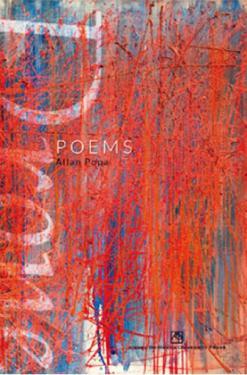
About halfway through, in Part Three, I fell in love with this book. At its center is a profound parable. It says we all live in the aftermath of a presence, a revelation. It has blasted us but given us focus, given our journey shape. We cannot name it but we serve its memory. All the meanings of our lives are the meanings of parable, ghostly, there and not-there. “The noise fills all that it hollows out.” This is a book of great eloquence and purity. —Frank Bidart
Allan Popa’s Drone envisions the human at its most alive and challenged. These beautiful, troubling, and exquisitely thoughtful poems interrogate the nature of terror and awe, violence and grace, suffering and art. Their folkways emerge as parables, songs, and “hearsay,” often revealing the territory between what can and can’t be said, and done, and believed. At the heart of this work lies a tenderness for all we have lost and a fierce commitment to all we stand to gain personally and collectively through acts of imagination. This is a powerful and much-anticipated book. —Elizabeth Willis
In Allan Popa’s new book of poems, spiritual destitution becomes both arena and event—a holding pattern of questions, riddles, rumors, signs, and visions haunted by answers and revelations that may never arrive. In this space-time of the yet-to-come, the book’s speakers pray and cry out if only to hear their voices sent back by the void as emblems of presence and the very possibility of ascension and arrival. In this world of waiting, thresholds and hiding places are everywhere transgressed and inhabited. Surfaces, landscapes, and skins bear the violence of being marked, hollowed out, and lived through. These are the figures and voices that rise up in the shadow of the Cross, of an oppressive regime, or of a cruel and profane Other. Strife and ecstasy exchange vows as Spirit and telos torment the fugitive here-and-now. —Jose Perez Beduya
These haunting poems tell timeless stories about those who live on the border between two worlds: one world is visible and stable, the other is a phantom world where objects and situations shape-shift into totems that confound our attempts to decipher their hidden meanings. The border inhabitants are just like us: they wish to understand the unfathomable. They wish, like us, to be better than they have been. Their voices echo our longings: for certainty, for reconciliation, for continuation. Allan Popa has created the cosmos, with earth and us in it. These brilliant poems will last. —Mary Jo Bang
Published in 2013.




